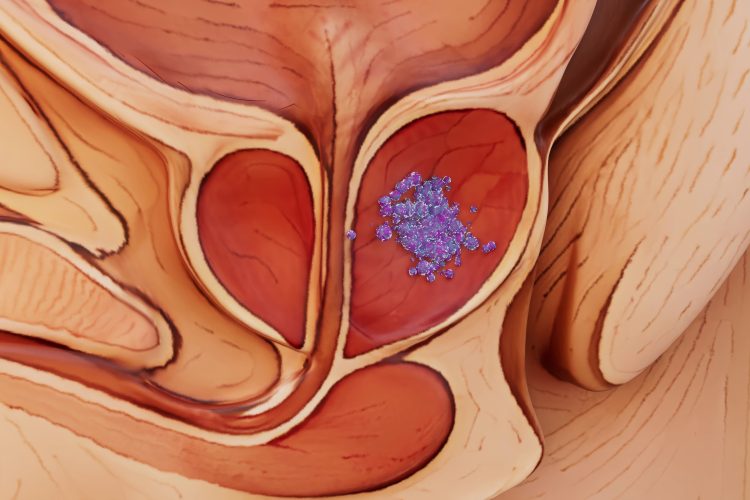TRβ receptor could be key to slowing prostate cancer
Posted: 10 November 2025 | Drug Target Review | No comments yet
A thyroid hormone receptor may play a key role in prostate cancer growth, offering a potential new target for treating aggressive forms of the disease.


Prostate cancer is the second most common cancer among men worldwide. Early-stage disease is often treated by lowering testosterone levels, but many patients eventually become resistant to this approach. For these individuals, treatment options are limited, highlighting the importance of research into alternative therapies.
A new study has discovered a hormone produced by the thyroid gland which may play a key role in the development of prostate cancer. The international research conducted by Umeå University and the Medical University of Vienna suggests that blocking a specific receptor for this hormone can inhibit the growth of tumour cells in the prostate, potentially leading to new ways of treating aggressive forms of the disease.
“The results indicate that the receptor in question is a driving force in the growth of cancer. Substances that block it could thus be a target for future drugs against prostate cancer,” said Lukas Kenner, visiting professor at Umeå University and the lead researcher of the study.
Automation now plays a central role in discovery. From self-driving laboratories to real-time bioprocessing
This report explores how data-driven systems improve reproducibility, speed decisions and make scale achievable across research and development.
Inside the report:
- Advance discovery through miniaturised, high-throughput and animal-free systems
- Integrate AI, robotics and analytics to speed decision-making
- Streamline cell therapy and bioprocess QC for scale and compliance
- And more!
This report unlocks perspectives that show how automation is changing the scale and quality of discovery. The result is faster insight, stronger data and better science – access your free copy today
The role of thyroid hormone receptor beta
The receptor identified by the research team is thyroid hormone receptor Beta, or TRβ, which binds to the thyroid hormone triiodothyronine, known as T3. Laboratory experiments demonstrated that activation of T3 caused a sharp increase in the number of prostate cancer cells.
The receptor identified by the research team is thyroid hormone receptor Beta, or TRβ.
However, when TRβ was inhibited using a research compound called NH-3, the growth of cancer cells was significantly reduced. NH-3 is currently used only in research to block TRβ, but the findings suggest it could have therapeutic potential in the future.
Promising results in animal studies
The study’s findings were further validated through experiments in mice. Tumours treated with NH-3 either remained smaller or progressed more slowly, particularly in models of castration-resistant prostate cancer. This aggressive form of the disease continues to grow despite treatments that lower testosterone, making it especially difficult to treat clinically.
Blocking TRβ with NH-3 was shown to work by eliminating a key signal known as the androgen receptor signal. This signal is normally activated by testosterone and plays a central role in the development of prostate cancer.
Supporting evidence from patient data
The research team also analysed tissue samples from prostate cancer patients. Elevated levels of TRβ were observed in tumour tissue compared with healthy prostate tissue. Genetic studies further revealed that mutations in many patients alter thyroid hormone signalling pathways, indicating that targeting the thyroid hormone and its receptor could be an encouraging target for new treatments.
Elevated levels of TRβ were observed in tumour tissue compared with healthy prostate tissue.
“Of course, it is a balancing act not to change the hormonal balance in the thyroid gland more than necessary to fight cancer in another part of the body, and it will probably not be a solution for all types of prostate cancer. Further research will have to answer what a treatment could look like, possibly in combination with other treatments. Of course, this is an interesting track,” said Kenner.
The urgent need for new treatments
Identifying TRβ’s role in prostate cancer growth represents a major moment in understanding the disease. The findings could help scientists develop new and more effective treatments for patients with aggressive or treatment-resistant cancers.
Related topics
Cancer research, Drug Discovery, Drug Targets, Hormones, In Vitro, In Vivo, Molecular Targets, Oncology, Translational Science
Related conditions
Prostate cancer
Related organisations
Medical University of Vienna, Umeå University
Related people
Lukas Kenner (visiting professor at Umeå University)








